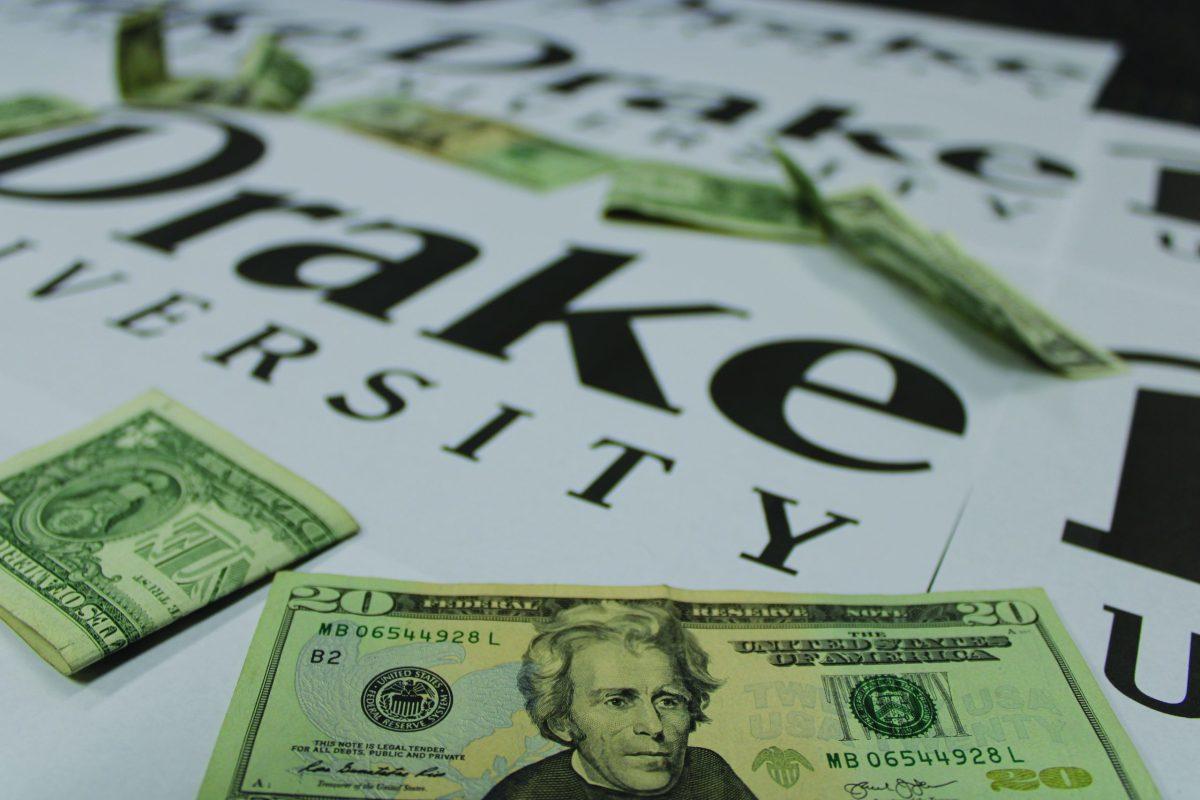Drake University plans to send out faculty pay adjustments amid concerns about inflation, pauses in benefits during the pandemic and uncompensated responsibilities shared anonymously with The Times-Delphic.
In an email to faculty in late September, Drake Provost Sue Mattison said the university had reached a target on faculty pay a year ahead of schedule. The university moved all faculty salaries to at least 85% of the median salary of peer institutions, she said.
“We have a group of peer institutions, and some of them pay more, and some of them pay less, and some of them have a higher cost of living, and some of them have lower,” Mattison said in an Oct. 24 interview with the TD.
When faculty’s salaries reach 85% of the median, they are at the minimum of the competitive range, according to Mattison at the March 22 Faculty Senate meeting. However, the current peer group is small.
Mattison said Drake is going to use a larger peer group, which is part of the Carnegie Classifications. Drake is one of 187 in one Carnegie group. Who ends up in that group relies on factors like research doctorates and money spent on research.
Klaus Bartschat, chair of the Faculty Senate Compensation Committee, said that “one can hope” the data from the Carnegie system is “more useful.” In an excerpt of an email he sent to Mattison in February, he said that “we favor the use of a sufficiently large and unbiased pool” such as the Carnegie classification.
Changing the peer group could cause salaries to fall short of the competitive range, according to Bartschat.
“If you choose a different peer group, your 85% goal may also vary,” Bartschat said. “You may find out that you’re doing better, or worse.”
Going forward, and starting with next academic year’s salaries, Mattison said she will ensure all faculty are at 85% of the median, based on the new peer group.
“I’ll check to make sure that everyone is in that competitive range – at least 85% of the median, and then distribute the remainder of the pot of money based on the formula that was recommended by the compensation committee,” Mattison said on April 4.
Taking a look at adjunct and visiting faculty pay
Colleges set their adjunct pay, Mattison said on April 25, and visiting professor pay will receive attention in the fall. Deans and their leadership would consider what the need is and whether pay has led to troubles hiring adjuncts, she said on April 4.
“We are in favor of taking a good look at adjunct and visitor pay,” Bartschat said in the February email excerpt. “It seems as if the rate has been stagnant for a long time and should be increased if we want to be able to hire qualified people. Ideally, of course, one would like to convert as many of those positions to tenure-track lines, but this is going to be expensive. So the next best thing is to be competitive.”
Mattison said on April 4 that pay for adjuncts and visiting professors has not changed for a long time, with exceptions.
“There were a couple that just recently changed,” Mattison said. “The School of [Education] changed. Before we started talking about this, it had not changed for a long time. And it’s not unique to Drake.”
Adjunct and visiting professors are not on tenure track, meaning that they are not eligible for the raises typically associated with receiving tenure, a recognition of a professor’s permanence at the university. At Drake, professors typically receive tenure review after six years on the tenure track.
Tenure-track positions are more difficult for faculty to achieve in colleges nationwide, as the adjunct model has been on the rise since the 1970s, according to InsideScholar. According to Mattison, 12 faculty received tenure this year, a similar figure to other years.
Mattison said on April 4 that “oftentimes you’ll read about adjuncts and their lack of benefits or the challenges that they have financially.” Someone might not have another job, and Drake might be counting on someone’s specific expertise for the curriculum, she said.
“As we’re trying to be fair to full-time people, we shouldn’t forget people who also do a lot of work,” Mattison said.
Mattison said President Marty Martin and the board “have indicated that [merit pay increases] is a priority.” If merit increases happen, that would likely start Jan. 1, she said.
Faculty concerns about pay
On the 2022 “Great Places to Work” survey, 139 out of 578 respondents suggested “compensation” as a theme for improvement.
The Times-Delphic sent an anonymous pay survey to all faculty members and received 60 replies as of April 28. Some faculty who answered reported raises not being kept at the rate of inflation and struggling to maintain their living styles in Des Moines on this pay scale.
“We haven’t really had raises for a long time,” Beth Younger, a professor of English, said of faculty in the humanities departments. She estimated that the last raise was four or five years ago.
Professors in the anonymous survey corroborated the statement.
“I feel like every year that I don’t get a raise, I’m actually making less money because of inflation,” Younger said. Several professors in the anonymous survey also mentioned raises not keeping pace with inflation.
To make up for the low pay for doctored professors, universities like Drake offer benefits for professors. At Drake, this includes, but is not limited to, tuition benefits for dependents, funds for academic betterment (such as at conferences), sabbatical opportunities and money towards a 401(k) retirement plan.
During the pandemic, all professors took a pay cut (tiered based on salary) and stopped receiving funds for retirement. According to Younger, the email announcing the freeze did not list an end date for the retirement freeze, though contributions began again after some months. Professors on the anonymous survey corroborated the statement.
With both the merit pools and proposed compensation reworks, Drake is in an ongoing conversation about compensation for work.
Lia Reichmann and Mack Swenson contributed reporting.








